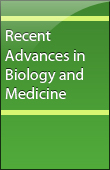


COVID-19 is an infectious disease that rapidly developed into a pandemic status. This deemed a need for new strategies to carry out routine health care activities. The recent practices and adaptations of the system as a response to the pandemic status were called a new normal situation. The aim of the study was to describe principles for adaptation to a new normal context for health care settings in COVID-19 pandemic. This narrative review of literature was conducted based on policy documents, guidelines, and public notices issued by the government and other key policymakers from the United Kingdom, Australia, Singapore, and Canada between June 15, 2020, and July 15, 2020, available on their government websites. The study revealed several principles, namely, enhanced surveillance, phasedown strategy for restoring routine services, vulnerability, dynamics of the service demand, new principles in human resource management, infection control measures, supply and usage of personal protective equipment, demand for intensive-care unit bed capacity, coordination and collaboration internally and externally, promotion and utility of remote care, ensuring equity, pre-hospital communication and assessment before reaching service facility, enhancing clinician participation in local-level decision-making, and risk assessments within all levels of service facility. The results of this study exposed new principles that facilitated managerial decision-making to the adaptation of new strategies. This new normal context created many challenges for resource management, which needed to consider dynamics of demand of services, prevention of spreading infections, and readiness for surge of cases while safeguarding quality and safety.